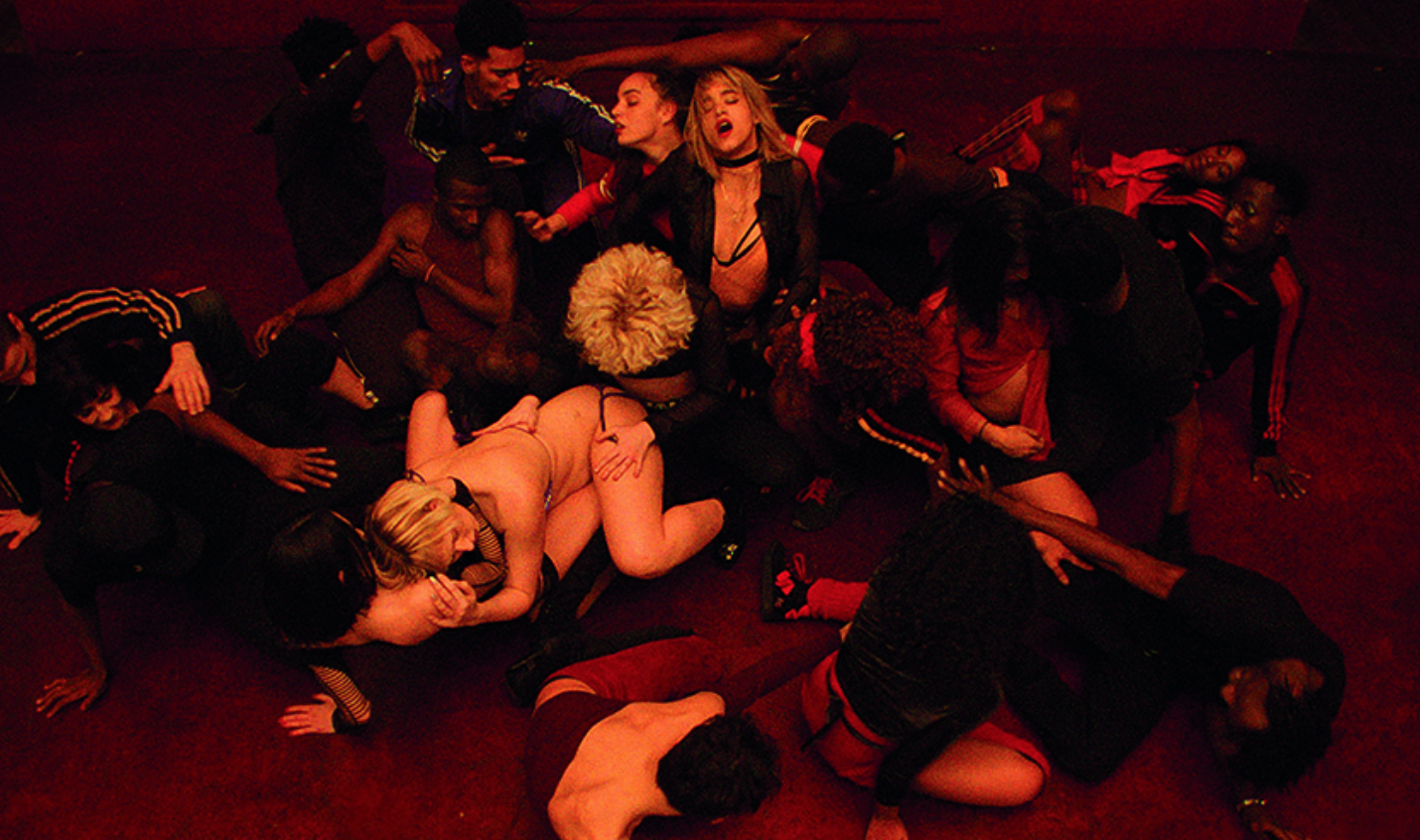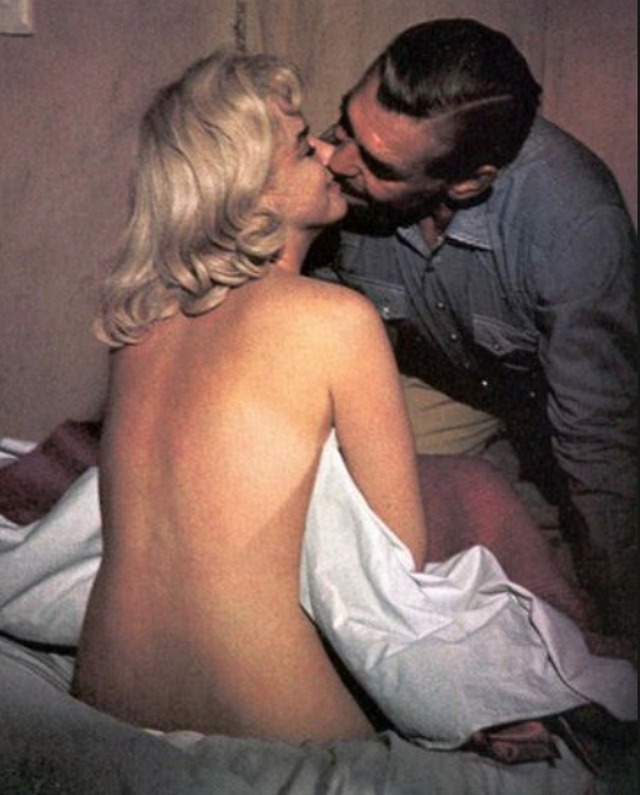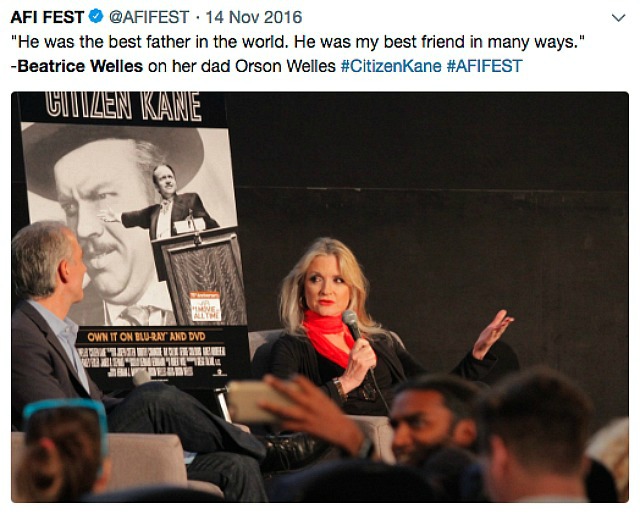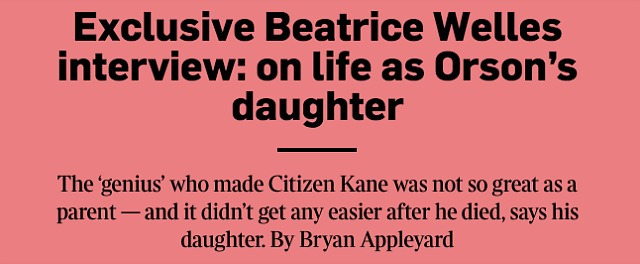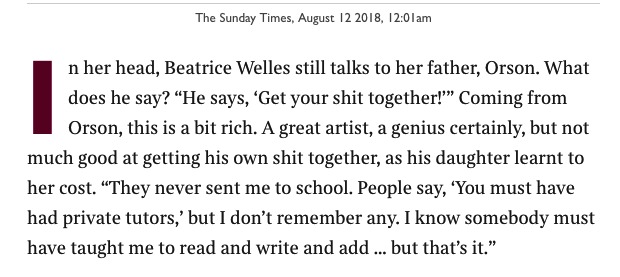In honor of A24’s new Climax trailer, a re-appearance of my Cannes Film festival review, posted on 5.18.18: Gaspar Noe‘s Climax is basically two movies, both running about 45 minutes, both scored to relentlessly pounding EDM and both about dancing bodies going to extremes — agile, mad, writhing, flailing around. It’s highly charged at first, but goes nuts in the second half and thereby dwindles.
The first half is “wheee!…lovin’ it!” and the second half is “waagghhh, I’m gonna die!” But they’re both kind of shallow. Energetic, orgiastic, dullish. No dimensionality. But at the same time Climax is worth catching. The mad energy is too intense to ignore.
The first half, once it gets going after a 10- or 12-minute long video interview sequence, is far better. Climax is suddenly a wild, breathless, crazy-pump tribal dance flick — three (or four?) longish Steadicam shots of 20something dancers (Sofia Boutella is the only one I recognized), auditioning for a tour of some kind inside a modest-sized dance hall painted strawberry red (which half reminds you of the reddish gym-sized dance hall in Robert Wise‘s West Side Story), going gloriously wild, letting loose and kicking out.
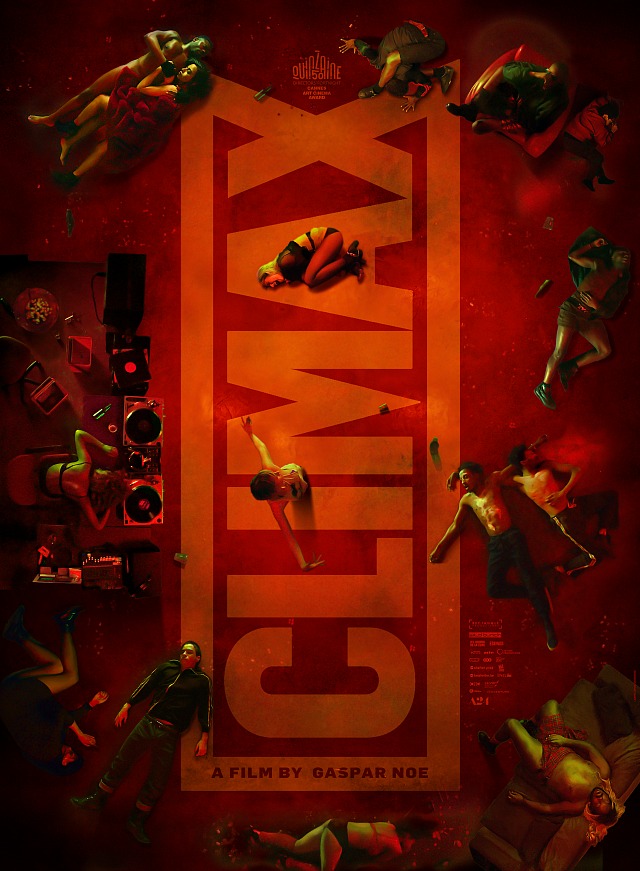
You could almost describe it as the first-act audition sequence from All That Jazz minus the grace and the training but set to EDM and with all kinds of push-push improv, sweaty and hot and bursting with crazy legs and arms whirling like helicopter blades. None of it guided by a specific dance style, much less a theme or a structure of any kind, but it’s pleasing to just sink into the tribal throb and just, you know, go with it. Shallow but cool in a frenzied sort of way.
And then comes the second half, which is about the dancers reacting badly and in some cases horrifically to some LSD-spiked sangria.
The problem with this portion is that LSD is presented as some kind of evil-trigger drug, as a loosener of civilized behavior and a portal to hostility. It’s predatory, of course, to slip LSD into anyone’s drink without them knowing, and yes, it’s likely that most people, young or not, would react fearfully and perhaps even with panic. I get it.
But deep down LSD is not some kind of vicious-agitator substance. It’s a Godhead drug, and it struck me as unbelievable that each and every dancer goes a little bit nuts here. Nobody — not a single soul — connects with any form of inner divinity and blisses out. Nobody just stops with the crazy and walks outside barefoot and marvels at the night sky.

